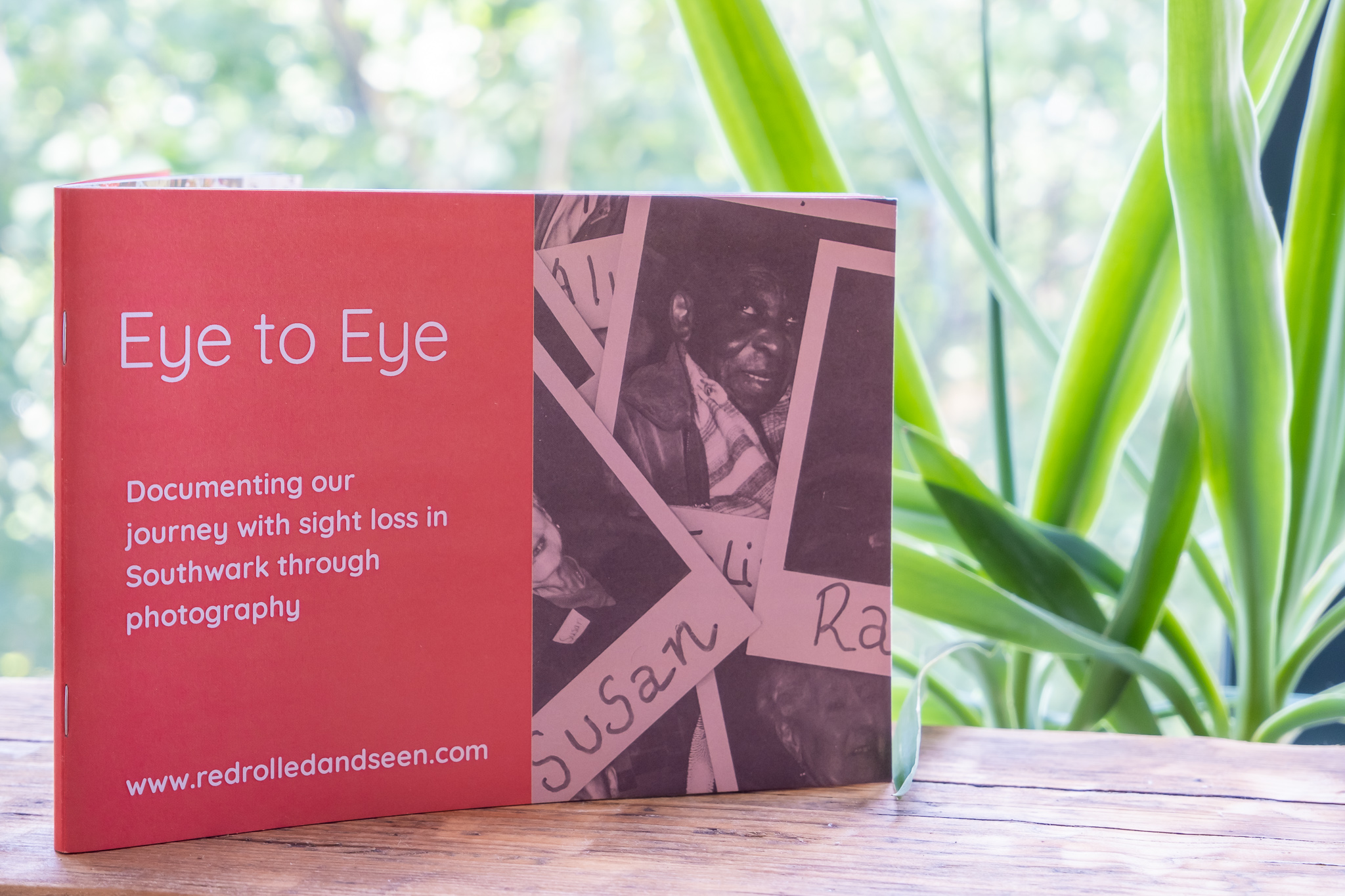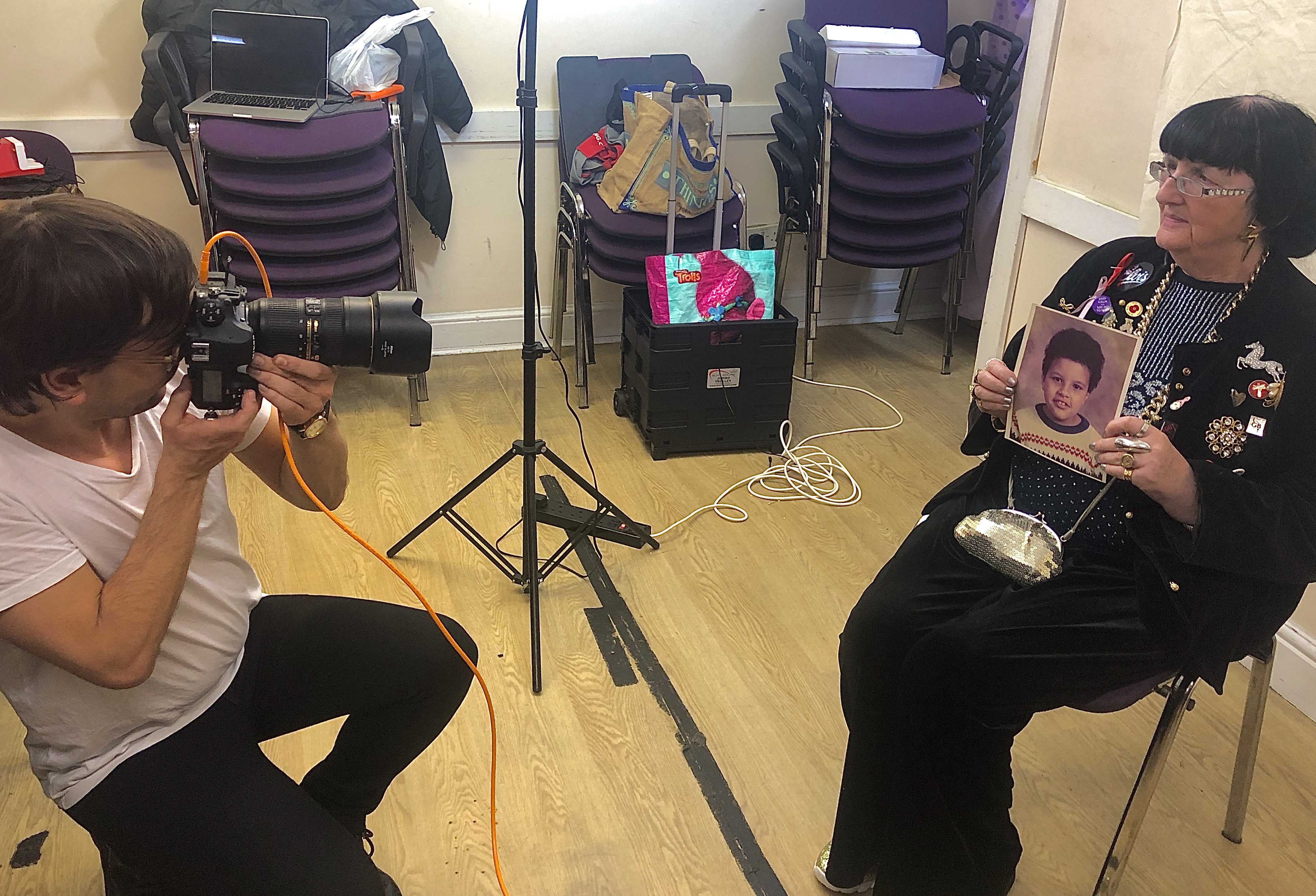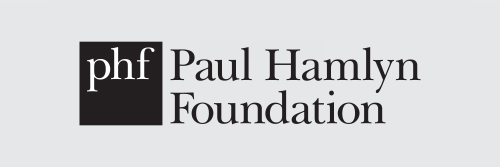

A Spotlight On… Bella Okuya
This month we hear from Bella Okuya, a photographer based in South London and her recent project with Southwark Pensioners Centre, ‘Eye to Eye’ and collective Red Rolled and Seen. Interviewed by Liz Wewiora, our Head of Social Practice, the pair discuss how Bella first became interested in participatory approaches to photography and the value of working with others. What can you learn from your participants and what as the photographer can you bring to the project?
Liz:
Thanks so much for agreeing to chat with me for the SEPN blog. I wanted to firstly ask you how you became interested in participatory approaches to photography? And is this your sole way of working with the medium now, or a strand of your practice?
Bella:
Thank you for having me Liz. I first became interested in participatory approaches to photography after stumbling across a piece of work by PhotoVoice. The work was about the experiences of a group of young people in an estate in London, told from their own perspective. I was immediately captivated by the concept of challenging the traditional power dynamics of photojournalism, and I was excited to see images created by people that I could identify with. I am a woman of colour, from a disadvantaged working class background, and photography always felt like an unrealistic career trajectory because I felt pressure to have a guaranteed job. I was continually told the odds were stacked against me, but once I found an aspect of photography that I could identify with I knew it was something I wanted to pursue in my life with confidence.
I would describe myself as a socially engaged photographer, because my independent work is about the documentation of my community in South East London, using documentary techniques and portraits. The rest of my creative output is in partnership with my documentary collective Red Rolled and Seen and hyper-local organisations that support local marginalised communities, like Southwark Pensioners’ Centre. I also work as a Foundation Manager with a charity called The Photography Foundation, which provides professional photography training and skills to disadvantaged and underrepresented young people in London.
Liz:
It would be great to chat more specifically about the project you developed with individuals from the southwark pensioners’ centre, ‘Eye to Eye’. Often people don’t think of photography and sight loss as something that would go hand in hand but I was really fortunate to work with a Blind Veterans group during a previous role at FACT in Liverpool where I learnt an incredible amount from them in terms of sight loss and working with visual arts. I’d love to hear more about the process of working with the group – the learning, perhaps the challenges but also the highlights you encountered along the way?
Bella:
Southwark Pensioners’ Centre (SPC) run a sight loss group (Eye to Eye) fortnightly at the centre for people over 50s in the London borough of Southwark. We were lucky to have the chance to essentially take over this fortnightly meeting, with the help of a Mayor of London Culture Seeds grant, and turn that gathering into photography workshops, group discussions, pop-up portrait studio sessions and show and tell informal assisted presentations. We had the support of the staff, our volunteers and the participants themselves during each session. It was really important to me to build trust with the centre staff and learn more about the needs of the participants before any sessions started.
I met with a number of the SPC team, some of whom I knew already through my work in community arts with UAL, before spending a few weeks with the participants informally. These informal cups of tea and biscuits helped us all understand and get comfortable with one another without any pressure to do anything. Taking the time to build relationships with everyone before the project began meant it was so much easier to be honest and open during workshops, which was fundamental to working with a group with a diversity of needs.
I learnt so much from the participants and the staff at SPC over the time we had before Covid paused the project. The biggest learnings I took away from our time together were the benefits of cultivating a balance between being flexible whilst also having a plan for each session, the importance of asking and never presuming, slowing down and just being present goes a long way when working in a participatory and person centred way. I also learnt so much about what’s important in life because as so often all of the participants spoke and photographed the people and places that offered support in their community, with memories of loved ones coming up again and again as being of the utmost importance in life. My preconceptions going into the project was that their lives would be adversely challenged by sight loss, whereas in fact what came out of the project was the opposite! Sight loss was challenging but it gave them a new perspective around what’s really important in life. The activist objective of the project was overshadowed in some ways by a celebration of life and this is something we tried to capture in the zine.
There were obviously many challenges but actually the biggest challenges were also the biggest learning opportunities. For example, attendance to the workshops varied significantly, sometimes we had up to twenty people in a small space, all with varying needs and levels of engagement, and sometimes we had less than ten. We would never be able to know who would turn up on a day and how much they wanted or were able to engage with what we had planned, many participants had additional health challenges. We managed this by going with the flow, asking the participants what they wanted to do with what we had planned, rather than telling them, so everyone felt they knew what was going on and could do something, anything, no matter how small.
It was hard work at times but the Red Rolled and Seen volunteers were an incredible part of that, and each of us had responsibility of a small group within the group, which gave us the freedom to constantly communicate with each participant. This was significant when working with participants who can’t see or have impaired vision, verbal communication needed to be twice as effective. We intentionally created a feeling in our sessions that everyone was of value and everyone deserved to feel heard and enjoy the sessions, no matter their level of ability.
The most memorable highlight for me came from one of our participants, Mavis. She is 91 and was so up for everything we did! One of the motivated people I have ever met. She came back with her images and we were blown away with how prolific and adventurous she was with photography, documenting her day to day life, what an insight! She got support from her support workers, people at her church, people in her community on the street to help her take photos and the results were amazing! We were stunned. It was a life lesson right there. From now on when I am nervous about a new undertaking I just tell myself, if Mavis can do it so can I!!
Liz:
It sounds like a really valuable project for both the collective and the participants involved, learning from each other really. It also reflects what we see in so many socially engaged projects, where expectations and preconceptions are totally challenged or shifted – often for the better ☺. It is also great to see the zine produced as a legacy and also fundraiser initiative towards the project. Can I ask what else is next for you, either with the project or with your wider collective and socially engaged work? Have you been considering how this sort of work moves forwards too with current limitations on social distancing?
Bella:
Yes, the zine was an amazing legacy and we would love to do another zine in the future. What’s next?! Great question and in the spirit of the project we are in some ways going with the flow, but to be more specific, we are hoping to continue our work with Southwark Pensioners’ Centre on a portrait photography project. These portraits will be captioned with narratives of the participants’ experiences of lockdown, and the outcomes will be used to gather qualitative research creatively, which will help the charity find ways to ease transitions back into services for their members. It’s a massive extension of the previous project, because it will involve other charity partners, working with a social researcher and many more participants. We intend for the images to form an in-house rolling digital and print exhibition, creating a greater sense of a belonging upon return for service users. We are waiting to hear about additional funding for this, so if anyone is interested in supporting us do get in touch!!

